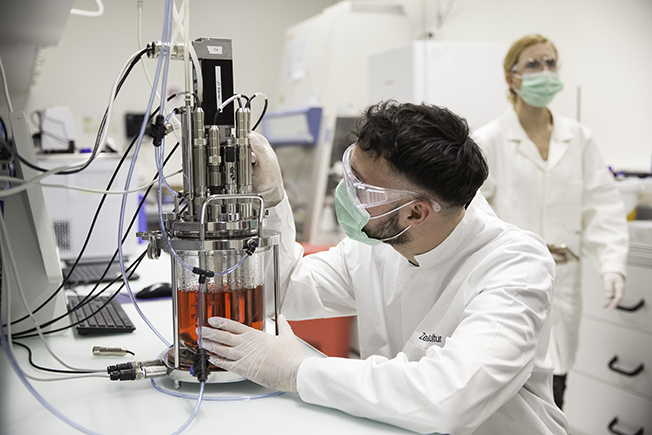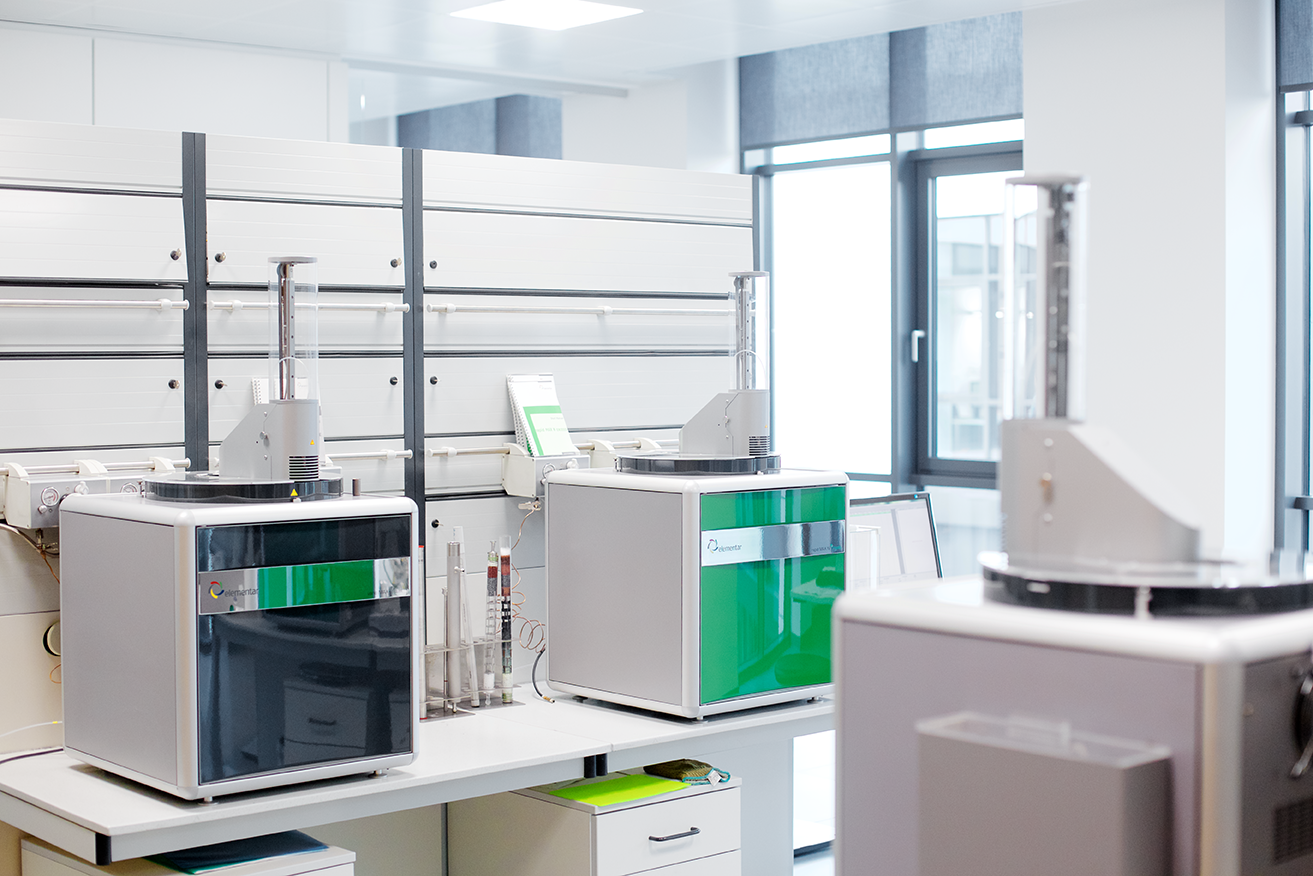

Future-proofing the supply of the world’s most versatile and functional food ingredient
Onego Bio’s technology is well established in the enzyme industry, but now it is being repurposed for making food ingredients, explains Chris Landowski, CTO & Co-Founder, Onego Bio

Eggs are one of the world’s most-used animal proteins. They are considered the perfect protein: they contain all the essential amino acids required by the human body while containing no sugars nor saturated fats.
Due to the status of eggs as a nutrition powerhouse, global egg production has almost doubled in volume during the past 20 years and is forecast to reach 138 million tons yearly by 2030 as the desire for high-quality proteins rises.
But the way eggs are currently produced is not sustainable. The agribusiness has evolved dramatically in recent decades, and the direction it’s heading is damaging the environment. We are now faced with problems such as climate change, availability of clean water and arable land, antibiotic resistance, loss of biodiversity, and even the risk of global pandemics such as avian flu.
In the past year, avian flu has caused major supply chain issues with egg production and availability, with egg prices skyrocketing. This underscores the need to future-proof the supply chain with animal-free solutions.
Food companies have been looking for viable egg replacements for years, but the performance of alternative ingredients stands in the way. Eggs have unique functionality, and they’re invaluable in all types of food formulations.
To help people adapt their eating habits, sustainable alternatives must match animal proteins in nutrition, taste, texture, and price.

Nature-identical egg protein, without chickens
Luckily there’s an alternative. With precision fermentation, we can create proteins that are bio-identical to the foods we know and love. And we can do that using 90% lower environmental impact and without major safety or supply chain issues.
Onego Bio has developed ‘Bioalbumen’, a nature-identical egg protein – from a functional, sensorial and nutritional perspective. There are all kinds of proteins in eggs, but the company is specifically producing ovalbumin, the main protein in egg white. Ovalbumin has all the functionality that food companies are looking for from eggs as well as a high-quality nutritional profile.
It used to be impossible to replace the +20 functionalities of eggs with any single ingredient. In many cases, food manufacturers just want the egg white functionalities in a short and simple ingredient list. Use of multiple ingredients creates more complex ingredient statements, ones that often include ingredients consumers are not familiar with.
The bio-identical nature of Bioalbumen means it can replace eggs in industrial applications without the need to change recipes or change the processing equipment.
And the most revolutionary part? By leveraging an existing well-established technology that is already used in industrial-scale production, Onego Bio is able to drive down production costs and reach price parity with traditional egg protein.

Precision fermentation is a safe, half-century-old technology that enables microorganisms to produce complex molecules, such as proteins identical to the natural ones.
This technology has been used for decades for producing food additives, processing aids and various enzymes such as rennet, as well as for medical products. Precision fermentation is a bit like beer brewing. In both processes, microorganisms are fed sugar to produce the desired molecules. In beer brewing, the desired outcome is alcohol. In Onego’s bioreactors, it is egg white protein.
The company has taken a microorganism called Trichoderma reesei, and trained it to produce ovalbumin, instead of its own enzymes. And Trichoderma is very good at its job. It is superior in converting carbohydrates into protein as it’s a protein producer by nature.
Compared to the traditional way of producing egg protein, the fungus can make protein with a 10 times higher resource-efficiency. Just 1kg (2.2 lbs) of Bioalbumen produces the egg white equivalent of 277 eggs.

The surprising workhorse behind Bioalbumen
The story of Trichoderma reesei and its journey to become the leading production host for enzymes and proteins is quite remarkable. As one of the most important workhorses of modern biotechnology, the filamentous fungus was originally isolated from the Solomon Islands in the middle of the Pacific Ocean.
The fungus was discovered during World War II as it was eating away at the uniforms and tents of the US Army. The discovery led to a surge in the study of Trichoderma reesei – especially in Finland. Originally named after Dr Elwyn T. Reese, who, with colleagues, originally isolated the fungus, and set the scene +70 years later for the research that will eventually revolutionize the food system we have today.
Research scientists in VTT Technical Research Centre of Finland have developed world-class expertise over the past decades studying and engineering Trichoderma reesei. Today, VTT has established itself as the world’s leading research organization using T. reesei in industrial biotechnology. Finnish researchers and companies have used it to produce enzymes used worldwide in the food, feed, textile, and biofuels industries.
This has laid a firm foundation for Onego Bio to use this well-known production system, Trichoderma reesei, which has been used in the industrial enzyme business for decades to produce large product volumes at very low costs. The company is now just changing the protein that is produced to benefit the food industry.
The importance of using the right technology
Precision fermentation is one of the most promising technologies in creating a more sustainable food system with a lot of discussion around scaling and capacity. One of the keys to success is choosing the right microorganism as the cell factory.
Filamentous fungi, such as Trichoderma reesei, are well suited to produce proteins like ovalbumin and beta-lactoglobulin at spectacularly high yields using simple, safe, and affordable bioprocesses methods. T.reesei can produce levels of the desired protein efficiently, up to 90g/liter and the production can be scaled up into large industrial fermentation tanks (over 150 000 liters). This makes the production extremely efficient and cost-effective.
Considering the huge need for products made via precision fermentation, companies should make sure their technology and manufacturing approach for their product can meet the needs of the market and the consumers. Ultimately, the products need to meet price parity with the animal-based product they are supposed to replace.
Precision fermentation is currently one of the most promising technologies in creating a more sustainable food system with a lot of discussion around scaling and capacity
Looking to the future, the industry should think about the most efficient way to employ capital to bring products to the market in a way that they will have the most impact. Many companies are planning to build large manufacturing plants to make their products as the existing capacity is not sufficient to provide the required volumes needed by the food industry. The manufacturing technology and method make a huge difference in this equation. It is especially important to know the profitability potential of that manufacturing endeavor well before making the big decisions.
Based on the Life Cycle Assessment (LCA) published in Nature Foods, the production of egg protein with T. reesei instead of chickens has the potential to reduce environmental impacts like GHG emissions and land use by ~90% when using glucose as a feed-stock. The impact is even more massive when using food side streams, as the fungus can eat basically any lignocellulosic materials. In fact, one of the advantages of using a fungal production system is the circularity of the process. Moreover, the fungal biomass can be utilized as valuable, functional raw material for a variety of applications like sustainable leather alternatives (mycelium leather) or bio-based packaging materials. Now as the sector grows, more LCAs across different production platforms are needed to quantify which production methods are the most sustainable.
For precision fermentation to make a significant positive impact, the industry needs to be able to produce products at mass scale with prices at or below cost parity. Not all technologies can achieve this, but Onego Bio has cracked the code.
For further information about OnegoBio's products, please click here
If you have any questions or would like to get in touch with us, please email info@futureofproteinproduction.com


%20ILVO%202.jpg)

.png)

